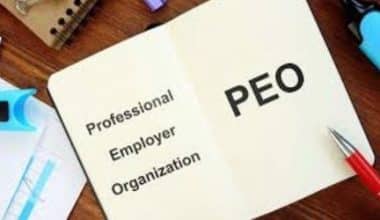There is a lot that may go wrong for a small business owner. One of the major challenges is collecting debts from clients. That’s when the services of a collection agency come in. Instead of chasing down late payers, businesses should concentrate on satisfying their clients. The services of a collection agency are to recover funds and shore up your cash flow. Read further to see the list of the best debt collection agency services for small businesses that you can opt for. We also added some steps you can follow to hire the best collection agency for your business. Enjoy the ride!
What Is Collection Agency?
A collection agency is a company that lenders or creditors use to recover unpaid debts or money from delinquent accounts. After numerous unsuccessful attempts to collect its debts, a creditor may often hire a collection agency. Lenders can use third-party collection agencies, set up in-house collections departments, or spin-off debt-collection subsidiaries to manage overdue accounts.
Best Collection Agency Services
You might be doubting if there are still any reliable collection agency services you can go for. There are still great options for you out there! Here are some of the best debt collection agency services you can opt for:
#1. Summit Account Resolution
Summit Account Resolution is one of the best collection agencies because of its up-front pricing, low required minimum collection debt, and flexible service packages. It is also a nationwide debt collection agency that serves a wide range of businesses and consumers.
With charges as low as 7% for some first-party collection programs and as high as 50% for consumer collection accounts, it is among the most cost-effective options out there. Prices can be discussed. There is no minimum balance requirement and no annual fee, ever. The price structure of the company relies on hypothetical outcomes. Summit AR will not charge you if it does not receive payment. It uses a variety of strategies, such as skip tracing and litigation services, to recoup outstanding debts.
#2. Qade
Qade provides a straightforward web gateway for monitoring all of your debt recovery efforts. If you partner with Qade, you won’t have to worry about collecting payment again. Qade’s services are risk-free because their payment is contingent on their success in collecting the debt. Qade will investigate and contact debtors, and if required, retain legal counsel. Qade works with reputable law firms that specialize in debt collection. They have the legal means to exert the kind of pressure that may prove required in the course of debt collection.
The first step is not to file a lawsuit. Before taking a debtor to court, Qade exhausts all other possible avenues of collection. However, in order to collect on some debts, it may be necessary to air out all the details in open court.
#2. Prestige Services Inc.
Prestige Services Inc. (PSI) offers the finest combination of collection agency services, pricing transparency, and customer service, making them one of the best B2B collection agency services you can opt for. PSI’s pricing is flexible and lower than those of similar services. There are price breaks for larger orders. PSI’s fees are contingent on successfully collecting the debt; if it doesn’t, you owe nothing. It is one of the best collection agency services for small businesses.
#3. Rocket Receivables
For small businesses that are having problems collecting and are worried about breaking debt collection standards, Rocket Receivables is the answer. Health care, retail, contracted services, real estate, professional services, education, and other sectors benefit from the service. The service is simple and is divided into two phases. Accounts that are less than 120 days past due qualify for Stage One, which features transparent pricing and a flat rate.
After the initial reminder from the creditor, three more reminders from third parties are sent to the debtor during Stage One. Phone call reminders are an optional extra in Rocket Booster. It is one of the Best Collection Agency services for Small Businesses.
#4. IC System
When it comes to business-to-consumer debt collection agency services, IC System is one of the best. They are one of the best collection agencies because of their years in the industry, upfront pricing, and successful past with debt collection. IC System provides two service tiers and price ranges, allowing business owners to adjust their collections to their own needs and budget.
The Recovery Plus service, which consists of two phases and costs $14.95 per account, can be used by business owners to collect a debt that is simpler to collect. Customers who have outstanding balances will get demand letters from IC System. If your client pays, you get to retain all of the money collected.
#5. Atradius Collections
Atradius is a collection agency based in the United States and operating abroad. It employs a global team of professionals who can communicate effectively with debtors since they share a common language and have an in-depth understanding of local collection laws. This means that Atradius is usable in 96 percent of the world’s countries, with an overall success rate of 79.3 percent.
Atradius explores alternative strategies, such as dispute registration, collection plan monitoring, and first-party collections, if traditional collection methods prove fruitless. When payments are collected, they are deposited into the bank account of the employing firm, irrespective of the currency in which the payment was made. It is one of the Best Collection Agency services for Small Businesses.
#6. The Kaplan Group
The Kaplan Group is a top-tier claims collection agency. This firm is one of the rare five percent of collection agencies that are members of the International Association of Commercial Collectors and has an A+ rating from the Better Business Bureau.
Large commercial disputes are its forte, but it can assist companies of any size. The three-step process developed by Kaplan has resulted in an 85 percent success rate for substantial claims. It is one of the Best Collection Agency services for Small Businesses.
How to Hire a Collection Agency
Thinking of how to hire a collection agency? You do not need to stress yourself just pay close attention to the fees, business practices, success rate, experience, and primary emphasis of all prospective collection agency services as you do your homework. The following are things to check when you want to hire any of the debt collection agency services:
#1. Cost Breakdown
Before hiring any of the collection agency services, it’s important to consider how much money you’ll have to pay. Fixed fees and contingent fees are the two most common payment structures. Clients either pay a flat rate, regardless of the outcome, or a contingency rate, which is a proportion of any funds recovered. The standard range for a contingency charge is between 7% and 50%.
Fixed-fee agreements have the benefit of not charging more for larger collection amounts, and all funds recovered go directly to the client. However, consumers that pay a fixed charge risk having their money not recovered by the collection agency. Fixed-fee systems are commonplace among the more accessible claims.
Clients benefit from contingency-fee contracts since they don’t have to pay anything unless they win the case. However, depending on the sum being collected, customers may have to part up a sizable sum. It would be wonderful if you could discover a collection firm that would charge less in contingency costs without sacrificing quality.
#2. Ethicality
Finding a reputable and honest collection agency should be a top priority for anyone in need of their services. A company will go for any of the best collection agency services in the hopes of recovering debt from the original customer without damaging future business relations.
If you hire any of the collection agency services known for threatening and harassing creditors, you should expect the debtors to avoid doing business with you in the future. Companies’ reputations suffer when unethical collection services are used, and those firms are usually less successful overall.
Find a collection agency that treats its clients with respect and care. Creditors need to be treated with respect and dignity at all times. This will improve your chances of getting paid back and also of doing business with them again.
#3. Experience and Proportion of Success
Check the agency’s success percentage, especially if they have a flat cost. Success rates in collecting debts typically exceed 75%. Clients that pay on a contingency basis care less because they have nothing to lose other than the time it takes to hire an agency.
If a company’s success percentage isn’t displayed, inquire about their previous work. Debt collection experience and the number of years in business are two selling points frequently used by collection firms. Keep in mind that prior work experience is a major plus in this field.
#4. Specialization
it is important to consider the expertise of a collection agency. Many will find employment in specialized company models such as business-to-consumer, business-to-business, national, international, or industry-specific enterprises. You may have to pay more to work with a specialized collection firm, but the organization’s expertise could be well worth the cost.
There are some agencies that only deal with claims over a certain threshold. Before deciding on an agency, do some research on their website and get in touch with their customer service if you have any remaining questions.
What Happens When You Are Sent to a Collection Agency?
Your creditor may hire a collection agency to help recoup overdue balances on credit accounts. In order to get their money back, collection firms buy consumer debt. While some financial institutions have established divisions solely devoted to debt collection, others prefer to outsource this function to specialized third parties. Lenders who are unsuccessful in collecting from borrowers through negotiation may resort to legal action. The ultimate objective, however, is always the same: to get in touch with overdue debtors and collect what you can from them.
What Happens When Your Debt Is Sent to a Collection Agency?
A collection agency will contact you via phone or mail if they decide to take over the collection of your overdue debt. Within five days of the collector’s initial effort to contact you, you are entitled to get a written notice, often known as a debt validation letter. Your rights to challenge the debt and the amount you owe must be stated in this notice. The original creditor’s name must also be included.
This letter is vital in the event that you need to contest the debt for any reason and must be kept until the issue is resolved. When a debt collector gets in touch with you, it’s time to start working on paying back your loan. Checking your credit reports is a smart practice regardless of whether or not the collection agency has reported the unpaid debt to Equifax, TransUnion, or Experian, the three nationwide consumer reporting agencies. This is one technique to see if the overdue debt is having an effect on your credit score.
What Services Does a Debt Collection Agency Offer?
In the absence of knowledge of your rights, the thought of strangers knocking on your house and demanding money you may not have can be terrifying. What measures do collection agencies take to get money owed? If you run into financial difficulties, what protections do you have? How does being a collection account affect one’s credit ratings and file?
Are You Allowed to Have Debt Collectors Contact You at Your Place of Work?
Debt collectors are not permitted by law to contact you at an unexpected or inconvenient time or location. So, if you have told a debt collector that they cannot contact you at work, they will not. Debt collectors are not allowed to contact you before 8 a.m. or after 9 p.m.
Can Debt Collectors Contact Your Family?
A debt collector is only allowed to contact your references, such as loved ones, in order to learn where you are. Things like your address, phone number, and place of employment could fall under this category. However, they can’t contact your contacts more than once, and they can’t discuss your debt with anyone besides you, your spouse, your parents or guardian (if you’re under 18), the executor of your estate, and your attorney if you have one.
Can a Debt Collection Agency File a Lawsuit against You?
Debt collectors can sue you in court if you owe money to them and you don’t pay up. If you are being sued, you should answer as soon as possible, either in person or through legal representation.
If you cannot afford an attorney, you can look for one through the American Bar Association’s Free Legal Help directory or the Legal Services Corporation’s search tool.
Do Debt Collectors Have Access to Your Financial Information?
Bank account access by collection agencies requires a court order. In some cases, a debt collector may be able to garnish your salary or access your bank accounts to collect on a debt after a lawsuit has been filed against you. But there are limits on bank accounts and wage garnishments set by state and federal legislation to make sure you have enough money to survive. These caps, which are also known as exemptions, are not uniform across the country; therefore, you should research the laws that apply to you where you currently reside and possibly consult a lawyer.
If you have your government payments, like those from the Social Security Administration or the Department of Veterans Affairs, deposited directly into your bank account, you have additional protections against garnishment. If a creditor seeks to garnish your bank account because of this, the bank or credit union is obligated to keep two months’ worth of benefits safe and accessible.
When It Comes to Debt Collection, What Safeguards Do I Have in Place?
The FDCPA is in place to ensure consumers are protected from abusive debt collection tactics. Debt collectors cannot use illegal, dishonest, or abusive methods to get their money from you per the Fair Debt Collection Practices Act. Mortgages, credit card bills, medical bills, and other unsecured debts incurred by individuals, families, and households are all covered by this statute. Collection agencies that you believe are engaging in unfair practices should be reported to the Federal Trade Commission (at ftc.gov) or the Consumer Financial Protection Bureau (at consumerfinance.gov).
What Is the Difference Between a Debt Collector and a Collection Agency?
Debt collectors can be either collection agencies or attorneys that specialize in debt collection. There are other businesses that specialize in purchasing bad debts from banks, credit card companies, and other lenders. Debt collectors go by a variety of names, including debt collection agencies, debt-buying firms, and debt-buying companies.
Final Thoughts
The ideal agency to work with is the one that best fits your requirements. Check through the reviews we’ve written to get more information on each firm. If you look around, you can discover a collection agency with reasonable rates and experience with debts similar to yours.
Related Articles
- DEBT COLLECTION ATTORNEY: What They Do, Their Importance and How to Hire One
- ROCKET MORTGAGE HOME EQUITY LOAN
- Average Collection Period (ACP): Formula, Calculations & Importance
- How To Pay Collections: Step-by-step Guide
- TOP BAD CREDIT HOME LOANS: For First-Time Buyers & Veterans with Guaranteed Approval






